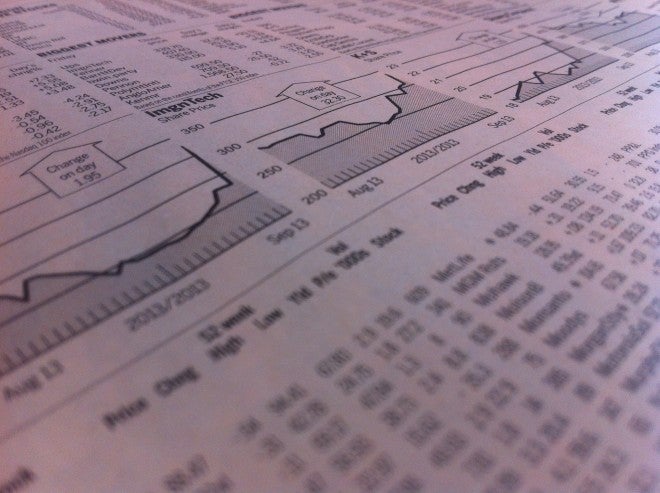Financial Crisis: The Big One is Still Out There
Jon Stokes 10.21.15

I’m not one of those people who believes that a financial crisis can ever mean TEOTWAWKI–and in fact I don’t think TEOTWAWKI is an actual thing that can happen short of an asteroid strike. A complete failure of the global financial system would mean massive social unrest, some amount of starvation, and a decade or two of misery, yes, but not “we’re back to living in caves.” That said, massive social unrest and starvation are still a really big deal, and I think it’s important to be prepared for a minimum of two weeks without basic services.
Anyway, with all of that in mind, this extensive article on the post-Lehman crisis of 2008 (and the lessons that were and were not learned from it) is a must-read. An excerpt:
Other financial workers in the City, who were at their desks after Lehman defaulted, described colleagues sitting frozen before their screens, paralysed – unable to act even when there was easy money to be made. Things were looking so bad, they said, that some got on the phone to their families: “Get as much money from the ATM as you can.” “Rush to the supermarket to hoard food.” “Buy gold.” “Get everything ready to evacuate the kids to the country.” As they recalled those days, there was often a note of shame in their voices, as if they felt humiliated by the memory of their vulnerability. Even some of the most macho traders became visibly uncomfortable. One said to me in a grim voice: “That was scary, mate. I mean, not film scary. Really scary.”
I spent two years, from 2011 to 2013, interviewing about 200 bankers and financial workers as part of an investigation into banking culture in the City of London after the crash. Not everyone I spoke to had been so terrified in the days and weeks after Lehman collapsed. But the ones who had phoned their families in panic explained to me that what they were afraid of was the domino effect. The collapse of a global megabank such as Lehman could cause the financial system to come to a halt, seize up and then implode. Not only would this mean that we could no longer withdraw our money from banks, it would also mean that lines of credit would stop. As the fund manager George Cooper put it in his book The Origin of Financial Crises: “This financial crisis came perilously close to causing a systemic failure of the global financial system. Had this occurred, global trade would have ceased to function within a very short period of time.” Remember that this is the age of just-in-time inventory management, Cooper added – meaning supermarkets have very small stocks. With impeccable understatement, he said: “It is sobering to contemplate the consequences of interrupting food supplies to the world’s major cities for even a few days.”
And then there’s the article’s conclusion, which should send a chill up your spine:
Seven years after the collapse of Lehman Brothers, it is often said that nothing was learned from the crash. This is too optimistic. The big banks have surely drawn a lesson from the crash and its aftermath: that in the end there is very little they will not get away with.
I don’t know if the next crisis will be the Big One, but I do believe that the Big One is out there in our future. And because of the issues outlined in the article, it’ll be worse than 2008. I have zero confidence that the necessary reforms to prevent it will be undertaken before it comes about, although I’d love to be pleasantly surprised.
I talked to bankers at Credit Suisse at the height of the crisis, before TARP passed, and they told me to call my wife and have her get cash out of the ATM and stock up on food. I wasn’t really into prepping at that time, but after that experience I definitely developed a keener interest in preparedness. (Maybe I’ll tell that whole story sometime here because it was pretty crazy.)